“Out of more than 1,400 entries, we made it to the final round… and won two awards.”
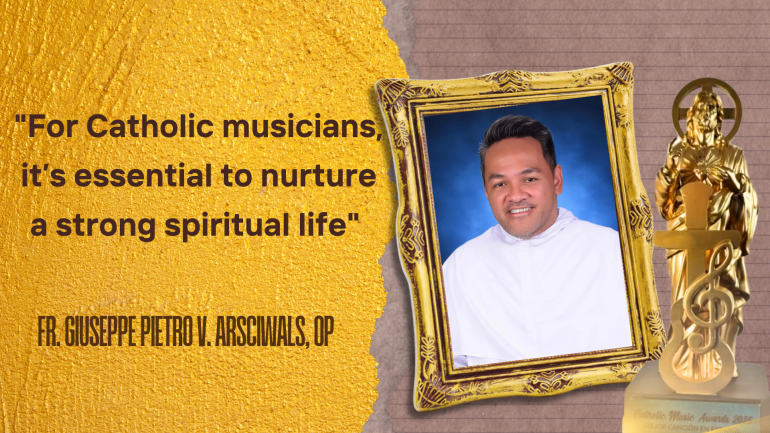
An interview with Fr. Giuseppe Pietro V. Arsciwals, OP, head of OPMusik, which won two awards at the recently concluded Catholic Music Awards in Rome
Fresh from their recent victory at the Catholic Music Awards in Rome, where they won Best Liturgical Song and Best Parish Choir, Fr. Giuseppe Pietro V. Arsciwals, OP, head of OPMusik, sat down for an online interview with the Chief Editor of Radio Veritas Asia. In this wide-ranging conversation, Fr. Arsciwals reflects on the founding and journey of OPMusik over the past 25 years, the revival of the ministry in 2021 under his leadership, the creative process behind his award-winning composition “Lord, Here I Am,” his own journey as a Dominican friar-musician, and a heartfelt message to young Asians aspiring to serve the Church through music.
Congratulations on winning two medals at the Catholic Music Awards in Rome. Let’s begin with the roots of OPMusik. Could you walk us through its history, how it started, the original vision, and how it has evolved over the years?
Fr. Arsciwals:
OPMusik was founded in 2000—25 years ago. It's based in Quezon City at the Santo Domingo Convent, which is also the headquarters of the Dominican Province of the Philippines.
It began when a group of Dominican priests formed a band called inggô 1587 and were preparing to release an album. They needed a producer or a label name, so to speak, and that’s how OPMusik was born.
The band’s debut album featured inspirational songs and was the first release under the OPMusik label. A year later, we produced a double album with the Santo Domingo Male Chorale, a group of laymen dedicated to sacred music. Their album, titled Oremus, Latin for “Let us pray”, featured songs sung entirely in Latin.
Two years later, OPMusik released another collection titled Psalms from Caleruega, a compilation of psalm-based sacred music featuring various artists, including myself. This was followed by an album of Marian songs.
After that, OPMusik entered a period of hiatus until its revival in 2017, again with a new album from inggô 1587. I officially became the head of OPMusik in 2021, and since then, we’ve been producing music more regularly.
The main vision of OPMusik is to create music that is evangelical in nature, music that inspires people and draws them closer to God.
Does OPMusik function solely as a recording studio, or is it actively involved in producing albums?
We’re not just a studio or a facility for artists. OPMusik takes an active role in producing music. Many of the songs we release are original compositions by members of the Dominican family, friars, sisters, and lay collaborators. These are then performed and recorded by the same community. It’s a collaborative effort. We also work with professionals in the music industry to ensure high-quality production.
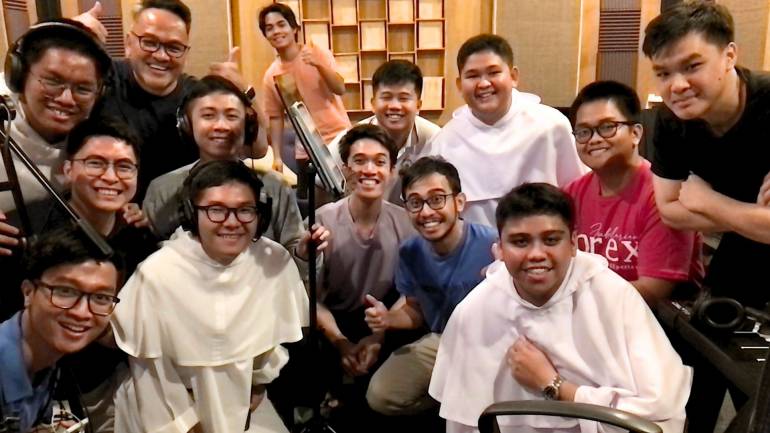
As head of OPMusik, are you based in Quezon City full-time, or do you have other ministries as well?
I currently have another ministry. I serve as the superior of Saint Mary Magdalene House, which is the Dominican residence attached to Caleruega Retreat House in Nasugbu, Batangas. So my role with OPMusik is something I carryalongside that responsibility.
Did you have any background in music before joining OPMusik? You couldn’t have just landed there by chance.
I come from a very musical family. My father was a classically trained tenor, and I had some formal training in piano.That early exposure definitely shaped my love for music and prepared me for this ministry.
When I joined the Dominican Order, I was often naturally assigned to music-related tasks. It became a consistent part of my formation and ministry, allowing me to hone both my talent and interest in sacred music.
I was ordained in 1995. I began my ministry in formation, spending six years in the pre-novitiate before serving in a parish in Dagat-Dagatan, ministering to the urban poor. I later returned to formation work and taught in the seminary, then served as prior in two convents.
Throughout all these ministries, music has remained central to my vocation. I firmly believe that music is a powerful force in evangelization, especially in formation. It helps instill an appreciation for sacred music and its role in the liturgy. Even in the parish, I noticed how little emphasis was placed on liturgical music, so I began composing a set of songs for Holy Week to help people connect more deeply with the celebrations.
You are a member of the Order of Preachers. How does music ministry align with your congregation’s fundamental charism of preaching the Word of God?
As Dominicans, we preach in many forms, not just through homilies or retreats. One can preach through the arts, including music. Music is a powerful medium for proclaiming the Word of God. As long as the intent is to evangelize, any form of expression, even beyond words, can become a vehicle for preaching.
Are OPMusik hymns being used in churches? Are they widely used across the Philippines?
Although OPMusik began 25 years ago, it only started gaining momentum around four years ago. Our music is used mainly in Dominican churches, but we hope to see them sung more widely across the Philippines.
We’ve also started building a following due to the availability of our songs on Spotify, Apple Music, and Amazon. We produce music in various genres, some liturgical, others inspirational, but all rooted in the Gospel message.
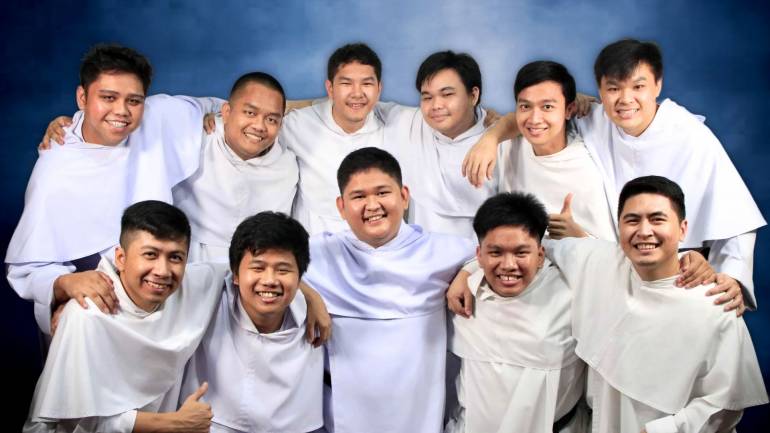
Now, moving on to the Catholic Music Awards where OPMusik won two awards, how did you end up participating?
One of our friars pointed me to an article from Aleteia about the Catholic Music Awards, which was calling for entries worldwide. This was around October or November last year. The awards accepted Catholic music released between 2021 and 2024 in English, Spanish, Portuguese, or Italian.
The deadline was Ash Wednesday. We submitted four English-language songs well before the deadline. Then in May, we found out we had been selected as finalists. Out of more than 1,400 entries, we were fortunate to make it to the final round.
How were the winners judged? Were you present at the awards night in Rome?
The winners were judged by a panel of about 60 music experts from around the world. The awards night was held on July 27, but unfortunately, we couldn’t attend due to visa issues and financial constraints.
Although we were invited and received an email asking if we’d be attending, the time was too short to secure the necessary documents, especially for a choir. So we informed the organizers that we couldn’t make it and requested they receive the awards on our behalf if we won.
It was patterned after the Grammys, with judging based on recorded music, and the event itself being purely an awards ceremony. That’s why it has been dubbed the “Grammys of Catholic Music.”
What does the award entail?
The winners receive trophies and certificates. We’re currently coordinating with the organizers on how we can claim our trophies.
Tell us about “Lord, Here I Am”, the song that won Best Liturgical Song in English.
I composed “Lord, Here I Am” back when I was still in formation, before I was ordained. As a seminarian, I was deeply inspired to respond to God’s call, and I wanted to express that through a song. My hope was that it would also inspire others to be attentive to their calling and say “yes” to it.
The song was first recorded in 2004 as a solo piece. The version we submitted to the Catholic Music Awards was a choral arrangement performed by the Dominican brothers’ choir, Koro Dominiko, recorded in 2024. It features a richer sound with four-part harmonies.
How did you find out about OPMusik’s win?
The awards night was streamed on YouTube and Facebook. I couldn’t watch it live since it was early morning here, but someone messaged me to say we had won, and we were absolutely thrilled.
What does this victory mean for Catholic music in the Philippines?
Music is a gift we must continue to nurture in the Church. Its role, both within and beyond the liturgy, has always been vital in transmitting the Gospel. This win should inspire more people, especially the youth, to write music that reflects and carries Gospel values.
Where does OPMusik go from here?
We have several projects lined up. Next, we’re releasing an album of classical sacred music in collaboration with professors from the University of Santo Tomas Conservatory of Music.
Our win in Rome was warmly received by our congregational leadership and has sparked renewed interest among friars to make a greater impact in the field of music. We also plan more collaborations with lay people, as we believe the wider faith community, not just friars or sisters, has much to contribute to this ministry.
Finally, what message do you have for young Asians aspiring to contribute to Catholic music?
Music plays a vital role in the life of the Church, but its power flows from a deep relationship with God. For Catholic musicians, it’s essential to nurture a strong spiritual life and a solid understanding of the faith. Only then can the music they create truly reflect the teachings of the Church and become a meaningful channel of God’s message to the world.
Radio Veritas Asia (RVA), a media platform of the Catholic Church, aims to share Christ. RVA started in 1969 as a continental Catholic radio station to serve Asian countries in their respective local language, thus earning the tag “the Voice of Asian Christianity.” Responding to the emerging context, RVA embraced media platforms to connect with the global Asian audience via its 21 language websites and various social media platforms.










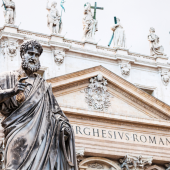
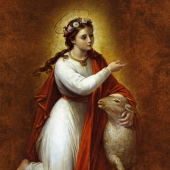
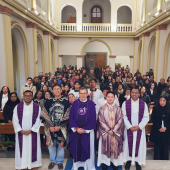


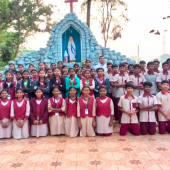
Please write beautiful songs about parenthood and parental love. How they led you to the sacraments, their devotion, the self sacrifices, the family bond - be it beautiful true or fictional, or simply about such parents. Please captivate secular listeners with the sound, but Catholic parents and families with the lyrics. In America, people prefer the sound of classic rock, pop, etc. Please write songs about such Catholic parenthood for that genre as well.
With great appreciation and thanksgiving,
Dan Melia
- Reply
Permalink